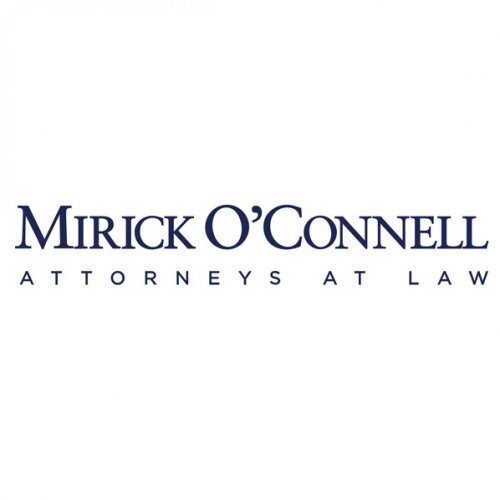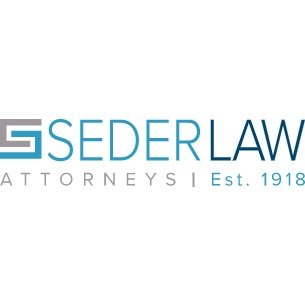Best Copyright Lawyers in Massachusetts
Share your needs with us, get contacted by law firms.
Free. Takes 2 min.
Or refine your search by selecting a city:
List of the best lawyers in Massachusetts, United States
About Copyright Law in Massachusetts, United States
Copyright law in Massachusetts is primarily governed by federal statutes, specifically the United States Copyright Act. This law gives creators of original works the exclusive right to use and control their creations, such as books, music, software, films, artwork, and other tangible expressions. While federal law takes precedence, Massachusetts often sees state-level disputes concerning copyright issues, including contractual matters and business dealings related to copyrighted works. Understanding both the federal framework and local practices is essential to protect your rights in Massachusetts.
Why You May Need a Lawyer
You may require the services of a copyright attorney in Massachusetts for a variety of reasons. Common situations include:
- When you believe your copyrighted work has been used without permission
- If you receive a cease-and-desist letter or are accused of copyright infringement
- To help you register your work with the U.S. Copyright Office
- During contract negotiations or licensing agreements regarding your intellectual property
- When starting a business or developing creative content and need to understand your rights
- To resolve disputes involving co-authors, partnership issues, or ownership of works created during employment
- If you wish to transfer, sell, or license your copyright rights
A lawyer can help you navigate the complexities of copyright law, ensure compliance, and maximize the protection of your creative efforts.
Local Laws Overview
Although copyright law is federally governed, Massachusetts has its own legal landscape that may affect how copyright disputes are managed within the state. For example, the Massachusetts state courts hear cases related to contracts, licensing, and employment matters tied to copyrighted works. Additionally, Massachusetts has a robust creative industry, leading to frequent legal issues involving technology startups, publishers, artists, and universities. It's also important to note that certain state-specific unfair competition and trade secret laws may intersect with copyright concerns. For most copyright infringement claims and statutory remedies, federal court in Massachusetts has jurisdiction, but local attorneys are familiar with both venues and local practices relevant to these disputes.
Frequently Asked Questions
What types of works can be protected by copyright in Massachusetts?
Copyright protection covers original works of authorship that are fixed in a tangible medium. This includes literature, music, visual arts, photographs, films, software, choreography, and more, as long as the work is sufficiently original and not a mere idea or fact.
Do I need to register my work to get copyright protection?
No, copyright protection attaches automatically when you create and fix your work in a tangible form. However, registration with the U.S. Copyright Office is required before you can file a lawsuit for infringement and can provide additional legal benefits such as statutory damages.
How long does copyright last in Massachusetts?
For works created on or after January 1, 1978, copyright generally lasts for the lifetime of the creator plus 70 years. For works made for hire or anonymous works, terms differ. Older works may be subject to different rules.
Can I use copyrighted material under fair use in Massachusetts?
The fair use doctrine sometimes allows limited use of copyrighted material without permission, for purposes like commentary, criticism, news reporting, teaching, scholarship, or research. Whether a use qualifies depends on several factors and should be evaluated carefully.
What should I do if I think someone has infringed my copyright?
You should consult a lawyer to assess your situation. Initial steps may include sending a cease-and-desist letter or filing a Digital Millennium Copyright Act (DMCA) notice, and, if necessary, pursuing litigation.
How can I prove ownership of my copyright in Massachusetts?
Ownership can be proved through registration certificates, contracts, drafts, dated files, or other documentation showing creation and authorship. Registration with the U.S. Copyright Office provides public record evidence.
What are the penalties for copyright infringement?
Penalties for infringement may include actual damages, statutory damages, injunctions, and, in willful cases, enhanced monetary penalties. Criminal prosecution is possible in cases of willful and commercial infringement.
What is the difference between copyright, trademark, and patent in Massachusetts?
Copyright protects creative works, trademarks protect brand identifiers like logos and names, while patents cover new inventions and processes. Each has separate rules and protections.
Can I transfer my copyright to someone else?
Yes, you can sell, assign, or license your copyright, partially or entirely. Transfers must usually be in writing and signed by the copyright owner.
How do I find a copyright lawyer in Massachusetts?
You can search local bar associations, state legal directories, or ask for a referral from organizations dedicated to creative professionals. Look for attorneys with intellectual property and copyright expertise.
Additional Resources
If you need more information or assistance, the following organizations can be helpful:
- U.S. Copyright Office - Offers filing, guidance, and informational resources
- Massachusetts Bar Association - Provides attorney referral services
- Volunteer Lawyers for the Arts of Massachusetts - Offers support for artists and creators
- Boston Patent Law Association - Useful for tech and startup professionals
- Greater Boston Legal Services - May assist lower-income clients in need of legal guidance
- Local law libraries and university legal clinics for educational resources and referrals
Next Steps
If you believe you need legal help with a copyright issue in Massachusetts, start by organizing all relevant information and documents related to your work and the issue at hand. Identify your specific concerns, such as infringement, licensing, or registration. Reach out to a qualified Massachusetts copyright attorney for a consultation. Many offer initial meetings to assess your case. Consider leveraging free or low-cost resources if needed. Acting promptly helps protect your rights and increases your chances of a favorable outcome. Do not hesitate to seek legal advice early to avoid potential pitfalls.
Lawzana helps you find the best lawyers and law firms in Massachusetts through a curated and pre-screened list of qualified legal professionals. Our platform offers rankings and detailed profiles of attorneys and law firms, allowing you to compare based on practice areas, including Copyright, experience, and client feedback.
Each profile includes a description of the firm's areas of practice, client reviews, team members and partners, year of establishment, spoken languages, office locations, contact information, social media presence, and any published articles or resources. Most firms on our platform speak English and are experienced in both local and international legal matters.
Get a quote from top-rated law firms in Massachusetts, United States — quickly, securely, and without unnecessary hassle.
Disclaimer:
The information provided on this page is for general informational purposes only and does not constitute legal advice. While we strive to ensure the accuracy and relevance of the content, legal information may change over time, and interpretations of the law can vary. You should always consult with a qualified legal professional for advice specific to your situation.
We disclaim all liability for actions taken or not taken based on the content of this page. If you believe any information is incorrect or outdated, please contact us, and we will review and update it where appropriate.
Browse copyright law firms by city in Massachusetts
Refine your search by selecting a city.










